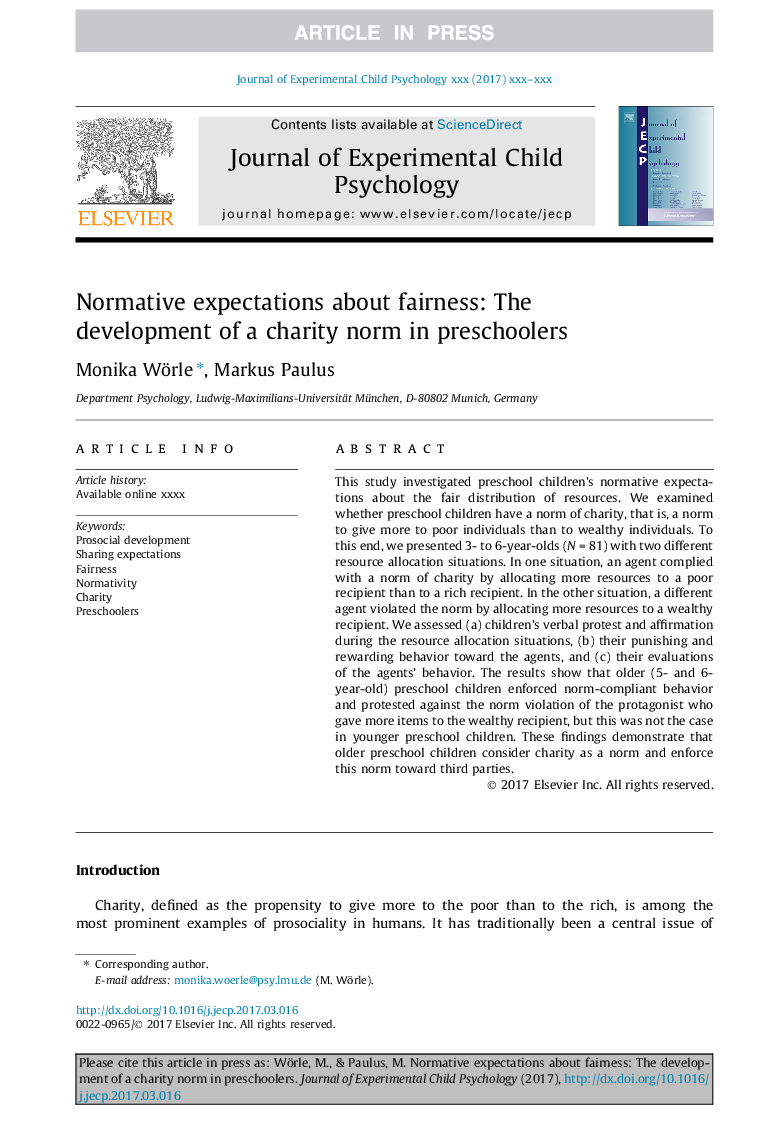| Article ID | Journal | Published Year | Pages | File Type |
|---|---|---|---|---|
| 7274337 | Journal of Experimental Child Psychology | 2018 | 19 Pages |
Abstract
This study investigated preschool children's normative expectations about the fair distribution of resources. We examined whether preschool children have a norm of charity, that is, a norm to give more to poor individuals than to wealthy individuals. To this end, we presented 3- to 6-year-olds (NÂ =Â 81) with two different resource allocation situations. In one situation, an agent complied with a norm of charity by allocating more resources to a poor recipient than to a rich recipient. In the other situation, a different agent violated the norm by allocating more resources to a wealthy recipient. We assessed (a) children's verbal protest and affirmation during the resource allocation situations, (b) their punishing and rewarding behavior toward the agents, and (c) their evaluations of the agents' behavior. The results show that older (5- and 6-year-old) preschool children enforced norm-compliant behavior and protested against the norm violation of the protagonist who gave more items to the wealthy recipient, but this was not the case in younger preschool children. These findings demonstrate that older preschool children consider charity as a norm and enforce this norm toward third parties.
Related Topics
Social Sciences and Humanities
Psychology
Developmental and Educational Psychology
Authors
Monika Wörle, Markus Paulus,
